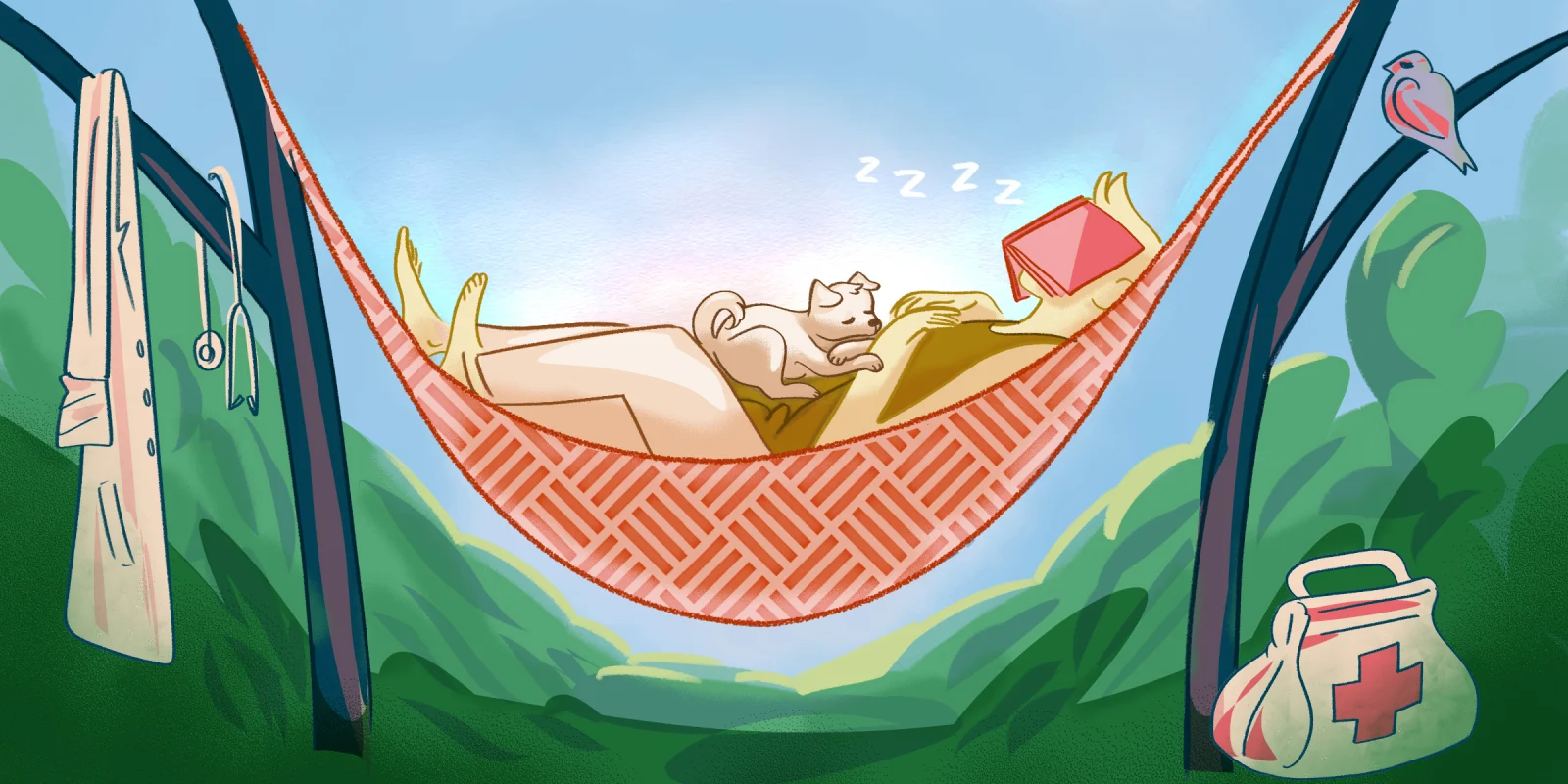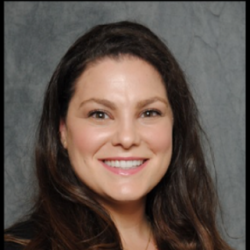I didn’t realize how low my candle was burning. My first year out of fellowship was one of grueling scheduling, a dangerous hour-plus long commute after night shifts, and learning the heroic yet unrealistic expectations of community emergency medicine. In my home life, I was challenged by moving into a temporary space, getting kids adjusted, unpacking, repacking, moving again, and navigating a new post-COVID social structure. I was in nonstop motion, chasing the ideal life I had dreamed of throughout my training. If medical training was a marathon, fellowship was the middle third — the miles where you feel good, stay on pace, enjoy the cheers on the sideline and bands at the mile markers. The first years after fellowship were miles 23-25. It was not quite the end, but I was tired, sore, thirsty, frustrated, and blistered — willing myself through each step, each shift, to just keep on going.
And then I went to camp.
My older daughter loves summer camp and my younger son wanted to join that year as well. Concerned he may be a little young, I signed up as the camp doctor for a two-week session. It was a blast.
Being a camp doctor challenged me on cases like whether a most likely viral illness really needed antibiotics, considering that the nearest pharmacy was about 45 minutes away, requiring one of the few drivers to leave camp for the whole morning. Does a sprained ankle really need an X-ray exam? A trip to the urgent care requires one of the few adults on campus to leave for half a day, charges the parents exorbitant fees, strains a rural community’s already limited resources, and forces the camper to miss a slew of activities.
On the third day of my camp doctor experience, I was called at night to pull out splinters long after lights were out, reinforcing the idea that confidentiality is essential for getting the full patient history behind many injuries. One of the 12-year-old boys taught me all about “roof jumping,” and we spent an hour on wound care while discussing the various methods for effectively jumping off of the roof of an abandoned bunk and landing on a stack of mattresses. Hopefully, my descriptions of spinal cord injuries and open fractures deterred similar misadventures. The next time he saw me, he asked for a popsicle and nodded in my direction.
I taught 8-year-olds how to make tea and 10-year-olds how to swallow pills for the first time. I made hard decisions to quarantine a camper before a highly anticipated “color war,” and placated others with the promise of cough drops and reassurance. One young camper who was quarantined could not figure out what to call me. Doctor? Mom? Doctor Mom? We decided on Dr. Liz and spent hours playing spit, watching Storyline Online books, singing along to musicals, and counting the hours down on our 24-hour fever-free chart. When she was finally “free” and cleared for activities, she got a coveted ride in the golf cart back to her bunkhouse. She was glowing, and her face shone brighter as she was welcomed back with cheers and high-fives.
My favorite patients were my nightly foot soak crew. Every night, two campers from drastically different social strata came in for nightly foot soaks to have their stubborn ingrown toenails treated. To help pass the time, I set these teenagers up with adult coloring books and markers. These two campers, who would not be seen talking to each other in any other circumstance, diligently showed up every night to color. Within one week, the cabin walls were plastered with their masterpieces, and both begged to come back and color even after their toes were long healed. After camp, one of them begged her mom to send me a picture of her pedicure.
I remembered how fun kids could be as patients. They are not the terrifying, elusive pediatric population that requires me to review pediatric advanced life support skills before every ED shift and anxiously double-check the range of normal vital signs. Seeing overall healthy kids daily made me remember how much I love what I do; how fun it is to be able to feel comfortable with broken ankles, sore throats, and homesick stomachaches; how privileged I am to be a doctor.
Being outside in nature, working out of a makeshift infirmary in an old wooden cabin, and writing basic EMR notes that state the essentials without billing in mind, reminded me of how awesome medicine can be.
And for myself, spending my free time with happy, passionate, and creative people, playing basketball and tennis, participating in art projects, and just being outside every day was invigorating and rejuvenating.
Those two weeks at summer camp made me ready and excited to return to the ED this fall. I learned to seek out what makes me happy, and made hard decisions on which responsibilities were not serving me. I remembered how happy I could be in medicine and have since set a new benchmark for fulfillment. I cannot wait until next year.
Have you had an experience that reinvigorated your love for medicine? Share your stories in the comment section.
Elizabeth Rubin is an emergency medicine physician and mom of three. She has an interest in using the potential of simulation to enhance quality safety, patient care, and professional development.
Illustration by April Brust







